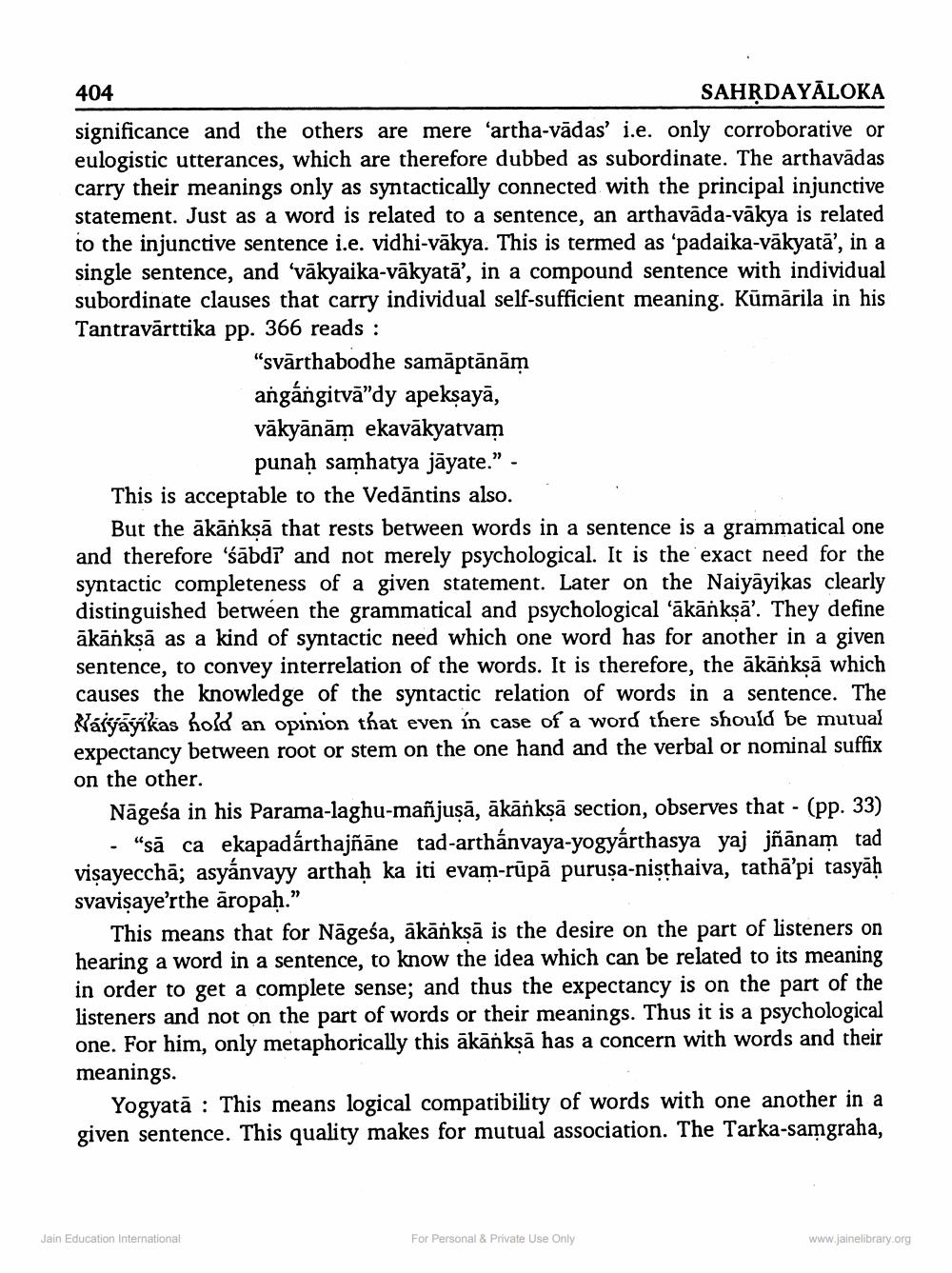________________
404
SAHRDAYĀLOKA significance and the others are mere fartha-vādas' i.e. only corroborative or eulogistic utterances, which are therefore dubbed as subordinate. The arthavādas carry their meanings only as syntactically connected with the principal injunctive statement. Just as a word is related to a sentence, an arthavāda-vākya is related to the injunctive sentence i.e. vidhi-vākya. This is termed as 'padaika-vākyatā', in a single sentence, and 'vākyaika-vākyatā', in a compound sentence with individual subordinate clauses that carry individual self-sufficient meaning. Kumārila in his Tantravārttika pp. 366 reads :
"svārthabodhe samāptānām angángitvā”dy apeksayā, vākyānām ekavākyatvam
punaḥ samhatya jāyate.”. This is acceptable to the Vedāntins also.
But the ākānksā that rests between words in a sentence is a grammatical one and therefore 'sabdr and not merely psychological. It is the exact need for the syntactic completeness of a given statement. Later on the Naiyāyikas clearly distinguished between the grammatical and psychological 'ākāńksā'. They define ākāńksā as a kind of syntactic need which one word has for another in a given sentence, to convey interrelation of the words. It is therefore, the ākānksā which causes the knowledge of the syntactic relation of words in a sentence. The Klárýäýikas hold an opinion that even in case of a word there should be mutual expectancy between root or stem on the one hand and the verbal or nominal suffix on the other.
Nāgeśa in his Parama-laghu-mañjusā, ākānksā section, observes that - (pp. 33)
- "sā ca ekapadárthajñāne tad-arthánvaya-yogyárthasya yaj jñānam tad vişayecchā; asyánvayy arthaḥ ka iti evam-rūpā puruşa-nişthaiva, tathā’pi tasyāḥ svavisaye’rthe āropah.”
This means that for Nāgeśa, akānksā is the desire on the part of listeners on hearing a word in a sentence, to know the idea which can be related to its meaning in order to get a complete sense; and thus the expectancy is on the part of the listeners and not on the part of words or their meanings. Thus it is a psychological one. For him, only metaphorically this ākāńksā has a concern with words and their meanings.
Yogyatā : This means logical compatibility of words with one another in a given sentence. This quality makes for mutual association. The Tarka-samgraha,
Jain Education International
For Personal & Private Use Only
www.jainelibrary.org




